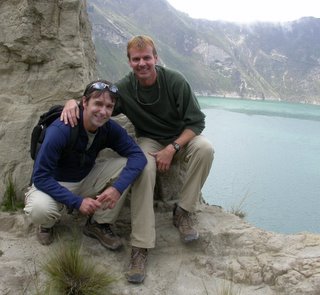book notes
The Evolution of God by Robert Wright
Hunter-gatherer societies did not require morality in their religion because behavior was regulated by the lack of village anonymity or personal autonomy. As civilizations grew, religion had to adapt.
Yahweh appears to have started as a god in Canaanite polytheism, transferred to early Israeli polytheism and graduated to Israeli monotheism.
The reason the Bible lacks a God narrative is that the polytheistic narrative was deleted or obscured around 500 BC
Biblical passages say much more about the time they were written than about the time they describe.
Same with Koran -- the passages from when Mohammad was in Mecca preach religious tolerance because he was in the minority, from when he was in Medina preach religious aggression because he was in ascension.
monotheism = nationalist, isolationist; polytheism = internationalist
rule about the Bible claims about history: the less a claim makes sense, the more likely it is to be true (because the gospels had to concede inconvenient facts if the contemporaneous audience had experienced them themselves) The earliest gospel (Mark) has the most inconvenient facts, the latest (John) the least
At the time it occurred, the Crucifix was an extremely inconvenient fact. But it ultimately turned religion on its head -- making sacrifice from God to human, rather than human to God.
The basic thesis is that religious theology has always changed to meet the evolving social needs of humans. The most flagrant example is the Christian Bible, where God is a genocidal maniac in the Old Testament and the embodiment of Love in the New Testament. (Maybe He invented Prozac)
So now that the humans have reached a level of social organization that is global, theology has to evolve to encompass the whole globe. The problem that Wright does not address is that human nature has always required an in-group morality and an out-group morality. You must have The Other to make you feel part of the in-group. As Gary has often pointed out, there would be an amazing transformation if we were under attack from outerspace. Then every difference between humans would disappear overnight.
Wright gets around this by saying that the history of theological evolution shows that our moral imagination expands when we understand that it is in our self interest to do so. And the prospect of nuclear annihilation makes a one-world theology in our self interest. Then the question he poses is whether nuclear annihilation is too abstract a threat for us to make such hard changes. And my answer is Yes.
Hunter-gatherer societies did not require morality in their religion because behavior was regulated by the lack of village anonymity or personal autonomy. As civilizations grew, religion had to adapt.
Yahweh appears to have started as a god in Canaanite polytheism, transferred to early Israeli polytheism and graduated to Israeli monotheism.
The reason the Bible lacks a God narrative is that the polytheistic narrative was deleted or obscured around 500 BC
Biblical passages say much more about the time they were written than about the time they describe.
Same with Koran -- the passages from when Mohammad was in Mecca preach religious tolerance because he was in the minority, from when he was in Medina preach religious aggression because he was in ascension.
monotheism = nationalist, isolationist; polytheism = internationalist
rule about the Bible claims about history: the less a claim makes sense, the more likely it is to be true (because the gospels had to concede inconvenient facts if the contemporaneous audience had experienced them themselves) The earliest gospel (Mark) has the most inconvenient facts, the latest (John) the least
At the time it occurred, the Crucifix was an extremely inconvenient fact. But it ultimately turned religion on its head -- making sacrifice from God to human, rather than human to God.
The basic thesis is that religious theology has always changed to meet the evolving social needs of humans. The most flagrant example is the Christian Bible, where God is a genocidal maniac in the Old Testament and the embodiment of Love in the New Testament. (Maybe He invented Prozac)
So now that the humans have reached a level of social organization that is global, theology has to evolve to encompass the whole globe. The problem that Wright does not address is that human nature has always required an in-group morality and an out-group morality. You must have The Other to make you feel part of the in-group. As Gary has often pointed out, there would be an amazing transformation if we were under attack from outerspace. Then every difference between humans would disappear overnight.
Wright gets around this by saying that the history of theological evolution shows that our moral imagination expands when we understand that it is in our self interest to do so. And the prospect of nuclear annihilation makes a one-world theology in our self interest. Then the question he poses is whether nuclear annihilation is too abstract a threat for us to make such hard changes. And my answer is Yes.


<< Home